The War on Palestinian Political Prisoners
The number of Palestinians in detention has soared since October 7. It’s a part of Israel’s strategy of control that cannot be ignored.
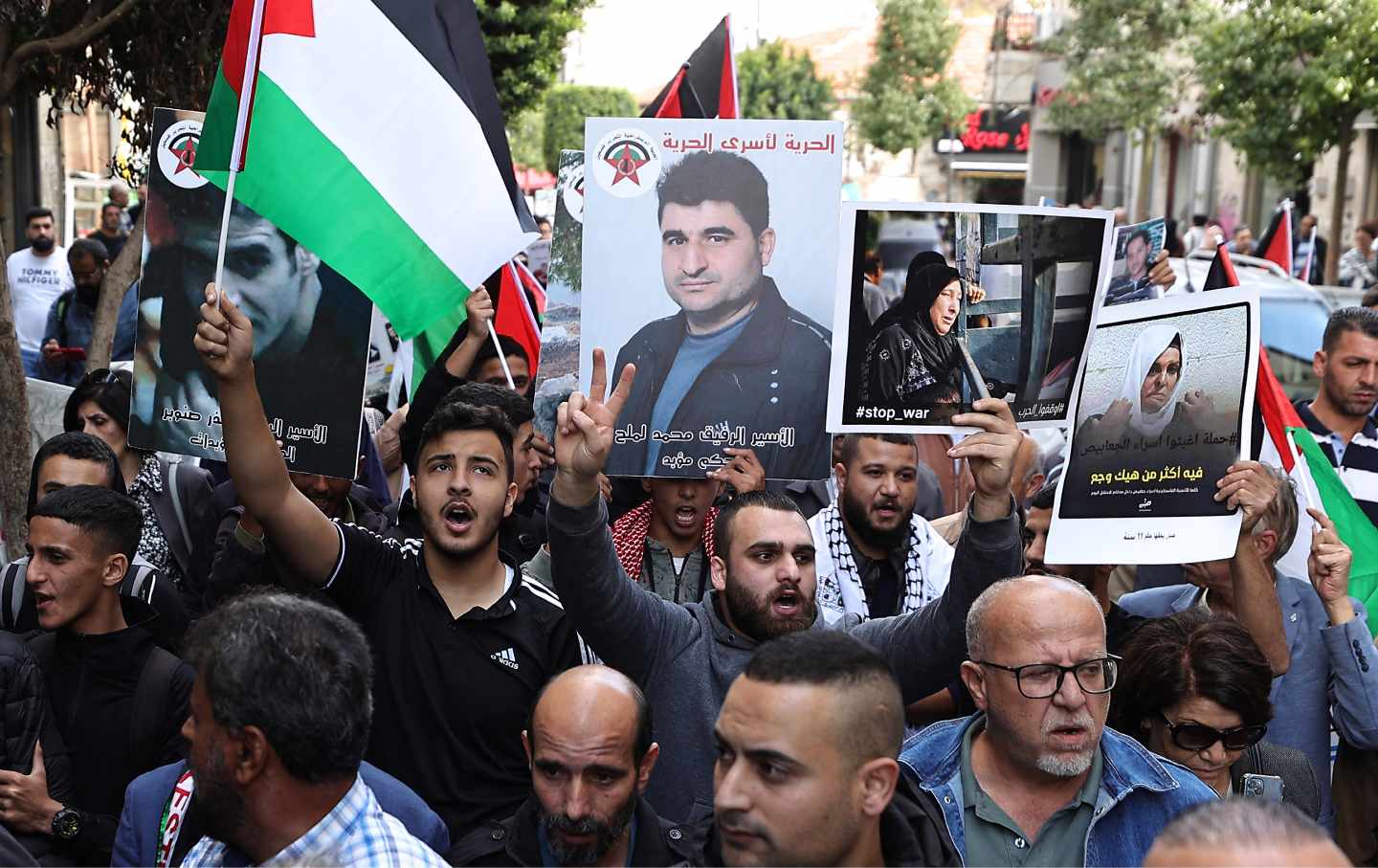
Protesters chant during a rally in Ramallah city in the occupied West Bank, in support of Gaza and of Palestinian prisoners in Israeli jails, on November 14, 2023.
(Zain Jaafar / AFP via Getty Images)I haven’t heard from my father since October 7, when Israel intensified its violence against Palestinians, particularly in Gaza, following the Hamas attacks inside Israel. My father has been detained in Ofer Prison for the past four years awaiting trial, alongside an estimated 8,000 other Palestinians within both Israel and the occupied territories—a figure that has skyrocketed in the past few weeks. Over 2,000 of those people are being held without charge, and all of them are locked away in prisons that human rights groups have long identified as centers of torture akin to Abu Ghraib and Guantánamo Bay.
As Israel continues its war against Palestinians—one which hundreds of scholars have called potentially genocidal—attention has understandably focused on the unimaginably horrific death toll. Over 13,000 people have been killed in Gaza as of this writing, including over 5,500 children. This is in addition to over 200 Palestinians killed and 2,200 injured in the occupied West Bank. These are crimes almost beyond comprehension.
But mass imprisonment, daily arrest, and torture are just as much a part of Israel’s assault as any airstrike. That is why it is so vital that we do not let those thousands behind bars languish invisibly.
Before October 7, Israel’s settler-colonial forces were holding nearly 5,200 Palestinian detainees, including 170 children, 33 female prisoners, four Palestinian Legislative Council members, and 1,264 administrative detainees. By November 20, nearly a month into Israel’s latest genocidal war, the number of political prisoners had risen to 7,000, including 200 child prisoners, 100 female prisoners, and 2,070 administrative detainees.
Thousands of Palestinian laborers from the Gaza Strip who were working in Israel were also detained by Israeli forces following October 7. A number of these laborers were recently returned to Gaza by Israel and reported that they faced torture, beatings, and verbal abuse in Israeli detention facilities. The number of Palestinians from the Gaza Strip held in Israeli prisons and detention centers remains unknown; nor is their condition known to lawyers and human rights organizations. This is in addition to the arrests and persecution of dozens of Palestinians living in Jerusalem and within the 1948 borders who were charged with “incitement,” raising the total number of Palestinians held in Israeli prisons and detention centers to an estimated 8,000 detainees.
The launching of Israel’s mass arrest campaigns across historic Palestine was accompanied by measures intended both to instill a sense of fear among Palestinians and to withdraw Palestinian prisoners’ rights won following decades of struggle. Since October 7, the Israel Prison Service (IPS) embarked on a series of measures against Palestinian prisoners. These included closing all prison sections, banning family visits, and imposing severe restrictions on lawyers’ access to prisoners. The IPS has also confiscated prisoners’ personal items and clothes, electrical devices including radios and television sets, and restricted access to electricity and water to extremely limited durations. The canteen, the location from which prisoners would buy and later cook their food, was closed. The IPS has also shut down clinics and is denying the transfer of prisoners to hospitals and external clinics, a decision that dangerously affects the health conditions of numerous prisoners with serious and life-threatening health conditions. The prisoners’ time allowed for “courtyard” walks was reduced to 15 minutes, and in some wards was entirely banned, thus leaving prisoners confined in their cells 24/7. This is in addition to serving prisoners a limited amount of poorly cooked food. Indeed, the Palestinian Commission of Detainees and Ex-Prisoners Affairs had warned of a starvation campaign against prisoners. The magnitude of the Israeli authorities’ starvation campaign was stressed by a prisoner who recently described to his lawyer that “just as we use the term ‘below the poverty line,’ what is happening here is below the starvation line.”
Palestinian human rights organizations have long pointed to the systematic resort to torture inside Israeli interrogation centers and prisons. Since October 7, however, the Israel Prison Service, aided by the presence of armed guards and the Israeli army, has intensified its subjection of prisoners to multiple forms of torture and other ill-treatment during arrests and inside prisons and detention facilities. Amnesty International documented cases in which prisoners were severely beaten, humiliated, and forced to keep their heads down, to kneel on the floor during inmate count, and to sing Israeli songs. These forms of brutal violence have led to the death of at least six Palestinian detainees, two of whom are workers from the occupied Gaza Strip whose death was made public recently despite their having been killed weeks ago. It is certain that more stories of violence and, unfortunately, death might be reported, given the incommunicado state in which most prisoners are being held, along with the severe restrictions on access to lawyers and the ongoing utter ban on family visitations.
The escalation of Israel’s arrest and torture campaign has been aided by several legal measures taken by the Israeli government to allow for the collective punishment of Palestinians. The Israeli Knesset approved an amendment to its “prison ordinance” on October 18, to allow for detainees to be placed on mattresses on the floor, in addition to other measures that allow for the overcrowding of prisoners’ cells. The Israeli government has also amended the “anti-terrorism” law to include extensive monitoring of what people publish on their social media platforms, and the pages and platforms they engage with. The Israeli Minister of Security issued an order that considers Palestinian detainees from the occupied Gaza Strip as “unlawful combatants” based on the “Unlawful Combatants Law” that was issued in 2002. The law allows holding Palestinians for an unlimited period without effective judicial review. Furthermore, military orders were issued to allow for longer periods of time during which administrative detention orders can be issued and reviewed.
The Israeli settler-colonial state has, in effect, turned prisons into another location from which its war against Palestinians is being launched. Prisoners are completely isolated, cut off from their families and communities, and brutally placed in conditions of violence intended to degrade, humiliate, and eventually kill them. In another story communicated to a lawyer, the prisoner narrates the following:
The 23rd of October was one of the worst days. At 9am exactly, the suppression units entered the cell. The search went on well into the night, until 11 pm. We were cuffed without electricity or water. We went back into the cell and all we cared about was that we were able to hide some papers and a pen. That was enough amidst the terrifying turmoil.
After it was stormed, the cell was filthy. Broken eggs were scattered, everything had been confiscated; the cell was completely barren, devoid of any objects. It was a different kind of Nakba [catastrophe, in reference to 1948]. We could see malice in their eyes as they smashed everything.
We don’t know what’s going on outside. We also don’t know what repression and measures the prison service will undertake next.
My body is exhausted—maybe from sitting for long periods of time and confined inside the cell which is maybe around 5-by-3 meters, and from the restrictions on yard time during which we would previously walk around (the yard is approximately 8-by-10 meters). I have started doing some exercise in the small space shared by eight prisoners in the cell, as it has become the only space available to us.
Showering has become impossible. Previously, detainees showered outside the wards, in a designated space called the “showers.” This is usually covered by fabric, which the prison service confiscated. Consequently, detainees are forced to shower in the open, which they have refused, opting instead to wash in their cells using plastic containers.
There is no water skimmer in the cells. We request them from the jailer and either they bring one or the water remains scattered on the floor.
Imprisonment has been a central mechanism of control and subjugation since Israel’s violent creation in 1948. Estimates place the number of Palestinians and Arabs of other nationalities imprisoned in 1948–1949—the year following the Nakba—between 7,000 and 12,000. Statistics documenting the resort to imprisonment since the 1967 occupation of the West Bank and the Gaza Strip estimate a total of nearly 1 million Palestinians to have passed through Israel’s numerous prisons and detention centers.
This aspect of Israel’s settler-colonial strategy of control has been described by scholars as a “carceral enterprise”and a “regime of enclavization.” Indeed, over the years, imprisonment has acquired broader meanings in a context of violence characterized by ever-increasing territorial fragmentation; ongoing annexation of Palestinian land; separation of families; enforced closures of towns, villages, and entire cities; restrictions on the movement of persons and commodities; and the deployment of lethal force on captive populations, with the Gaza Strip being the most obvious, and recurring, example.
The reality of captivity in Palestine was eloquently described by political prisoner and writer Walid Daka, who has been held in Israeli prisons since 1986, in recorded audio that circulated following the publication of one of his children’s tales from prison:
My motive in writing The Oil’s Secret Tale was not creative writing but rather sumud [steadfastness] in captivity, for sumud was not possible throughout these long years, without liberating my mind from its prison cell, little by little. As much as I yearn for liberation from prison, I yearn for liberating prison from myself. What caused me the most pain is that through my captivity I ‘lived’ with the grandfather, the father, and the son, and I recognized a scenario that keeps reiterating itself, as if captivity is inherited.
Popular
“swipe left below to view more authors”Swipe →This scenario of inheritance is, perhaps, what made a short-lived escape by six Palestinians from Gilboa prison through a tunnel they dug under their cell’s bathroom in September 2021 an event of extraordinary significance. The escape asserted the ability of Palestinians—and moreover, those confined inside Israel’s prisons—to literally break free.
Palestinian prisoners’ and human rights organizations have long pointed attention to the ways in which Israel enforced and developed laws not only to easily detain Palestinians but also to allow for the systematic use of violence and torture while providing total impunity for the perpetrators of these crimes.
Since the beginning of its occupation in 1967, the Israeli military proclaimed itself the ultimate authority of government, legislation, and control over a territory and population it designates as “administered” rather than occupied. The pretext of maintaining public order and security came to define the orders and regulations governing Palestinian conduct, as well as detailing mechanisms for punishment. Prisons, thus, naturally emerged as the location for the exercise of Israel’s punitive measures against Palestinians.
Today, Military Order No. 1651, in place in various forms since 1970, frames the conduct of military courts as well as processes for arrest, detention, and interrogation. It authorizes any Israeli soldier to detain any Palestinian upon the suspicion that an “offense” has been committed or will be committed in the future. The order lays out possible detention periods based either on the circumstances or the officer(s) carrying out the arrest. The military order forms the legal basis of the administrative detention policy, a policy inherited from the British Defense (Emergency) Regulations, which allows the arbitrary detention of Palestinians for prolonged periods of time without subjecting them to trial. At its core, this order grants full, all-encompassing, and unaccountable authority to members of the IDF or the Israeli police to detain any Palestinian at any time: a situation that has been repeating itself since Israel’s occupation of the West Bank and the Gaza Strip in 1967.
Similarly, Israeli security and prison service personnel have long resorted to numerous torture methods against Palestinian detainees. This included subjecting detainees to shaking, stress positions, excessive tightening of handcuffs, loud music, ripping of nails, pulling of facial and head hair from its roots; covering detainees’ heads with bags; using dogs during interrogation and arrest campaigns; and threats of arresting family members—among other practices designed to break prisoners’ will and to degrade them. Since the beginning of the occupation in 1967, 73 Palestinian detainees have been killed during Israeli interrogations.
Palestinians’ rights inside prison cells are similarly infringed on by the Israeli authorities, who place restrictions on family visitation and communication with other prisoners; limit their access to books and educational materials, and prevent them from enrolling in higher education programs; deliberately deny medical care; and subject them to solitary confinement. And then there’s the torturous policy of refusing to hand over to their families the bodies of Palestinian prisoners who died while in captivity. To date, Israel continues to hold the bodies of at least 15 Palestinian prisoners, including at least six who were killed inside Israeli prisons and detention centers following Israel’s genocidal war that began on October 7.
Over the decades, Palestinian prisoners have resorted to numerous confrontation practices—including hunger strikes, military court boycotts, organized educational classes, and disobedience—to demand their rights and a change in Israeli carceral policies. While the Israeli authorities never ceased their violent practices, prisoners were able to secure specific rights and forced the Israeli authorities to concede to their demands and improve the conditions of imprisonment.
The situation since October 7, however, is drastically different. It is unparalleled and brings people’s collective memory back to the early prisons following the occupation of 1967.
It is difficult to speak of hope during times imbued with images of genocide and settler-colonial massacres. Yet, Palestinian history, much like the history of other peoples who bore the breadth of colonial violence and torture, teaches us that will and hope combined can make miracles.
In his writings from prison, much like other prisoners engaging in cultural and political productions as a confrontation practice, my father stresses the duality of hope and pain with which Palestinian prisoners and their families have long had to live. This duality is more evident today. As prisoners’ families are anxiously waiting for news coming from prisons and holding onto hope that it bears the possibility of speaking to and visiting their loved ones, they are also aware that Israel’s revenge against prisoners has only just begun. The situation is harrowing. The hope of finally hugging loved ones, however, remains strong, especially as the potential of a prisoner-exchange agreement remains alive.
Indeed, the slogan of “whitening the prisons”—in other words, freeing political prisoners—is being uttered by many Palestinians who for years had to witness their family members killed, their bodies held captive, arrested, humiliated and tortured.
This slogan points to a dream of liberating all political prisoners and captive bodies long held by the settler-colonial state. This slogan also points to a broader political aspiration of true liberation in which Palestinians live freely, in dignity and justice, without having to worry about the next early-morning knock on their door coming to arrest them, or about the next missile fired at their neighborhoods with the intention of killing them.
More from The Nation
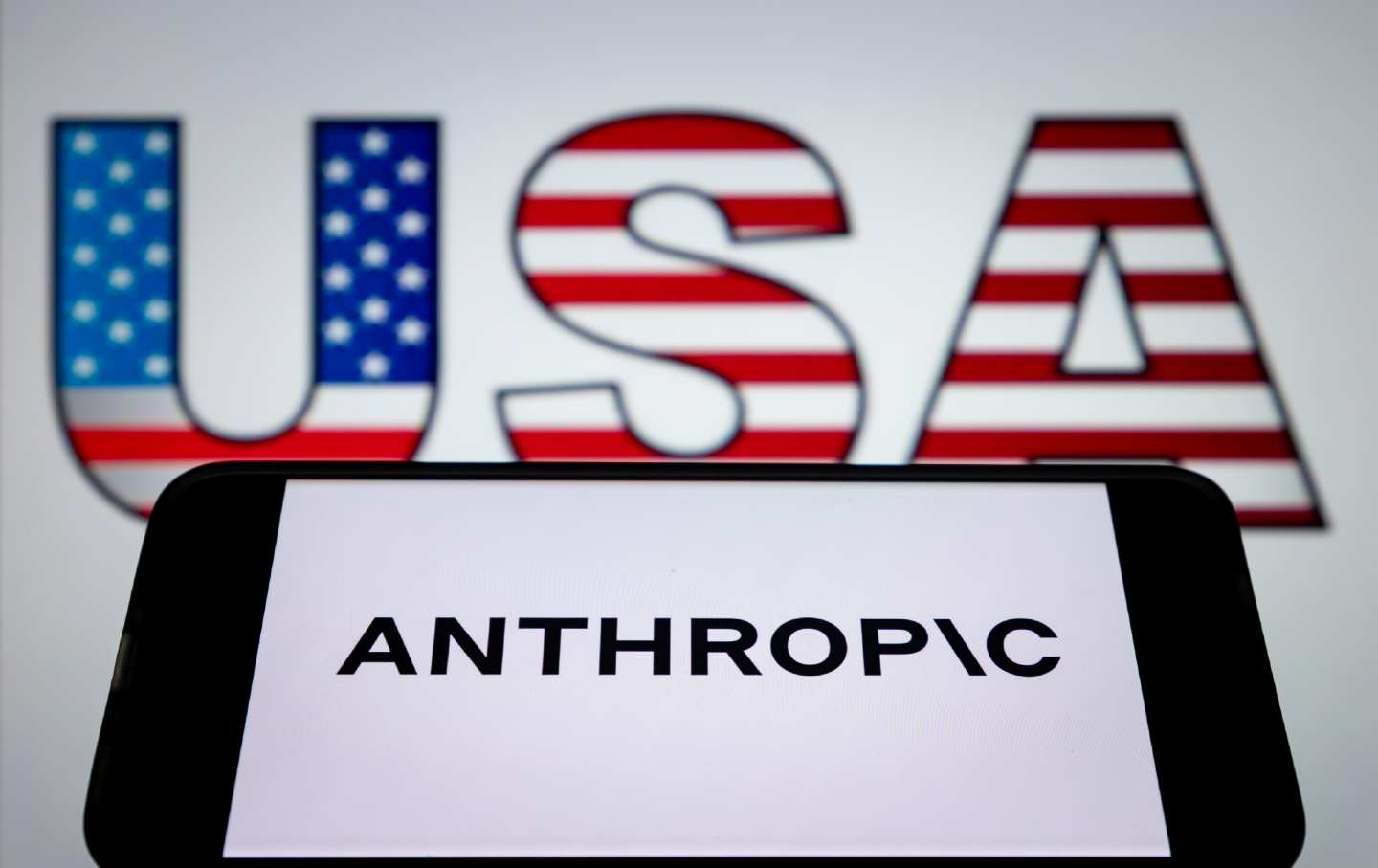
Garbage In, Carnage Out Garbage In, Carnage Out
The harrowing lessons of the Pentagon’s recently dissolved partnership with Anthropic.
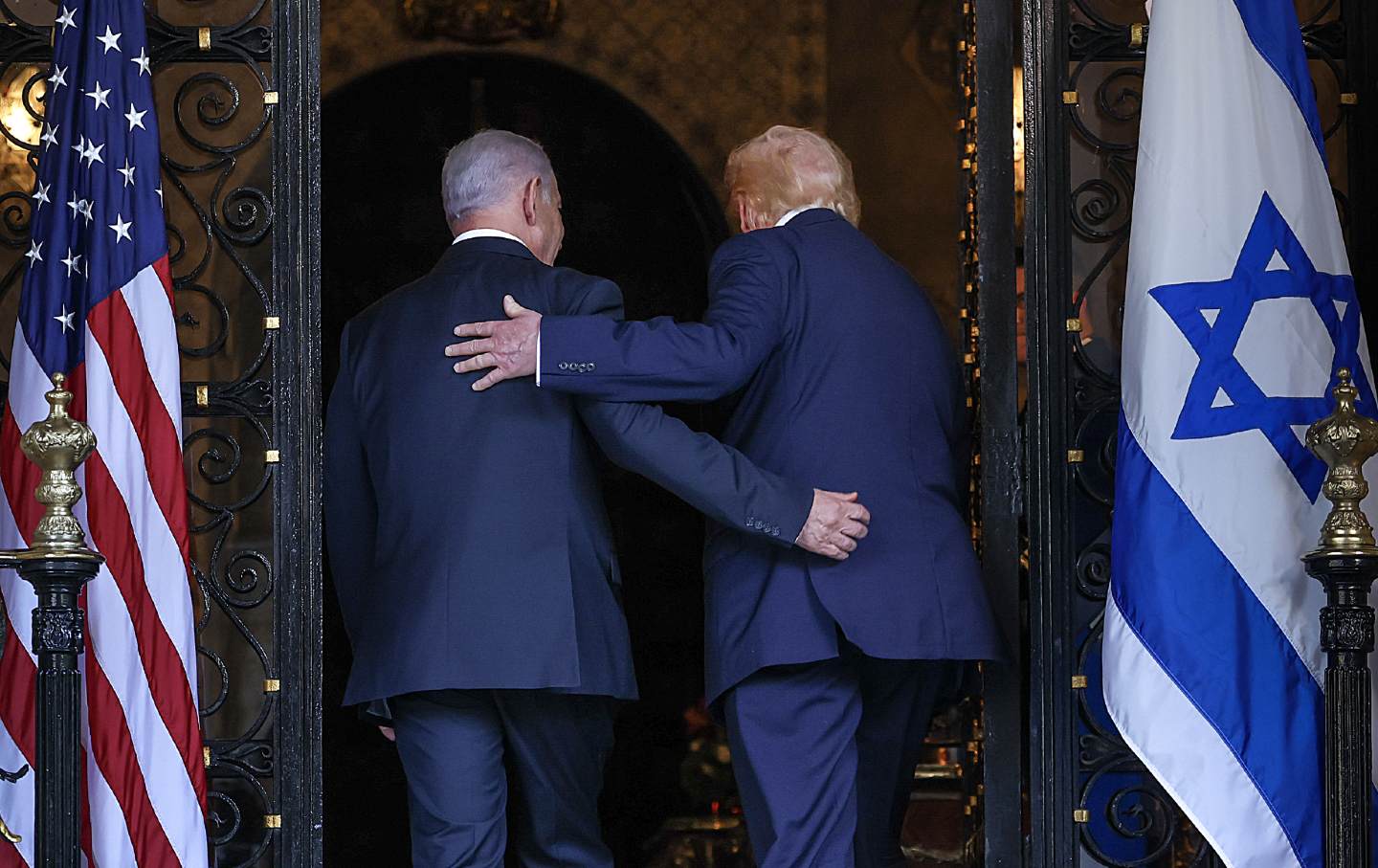
The Iran War Could Be Catastrophic for the US-Israel Alliance. Good. The Iran War Could Be Catastrophic for the US-Israel Alliance. Good.
As Israel’s role in pushing the war with Iran comes into ever sharper focus, it’s up to us to turn outrage into change.

An Unlawful War An Unlawful War
The precedent being set by the US in launching this war of aggression against Iran will long live in infamy.
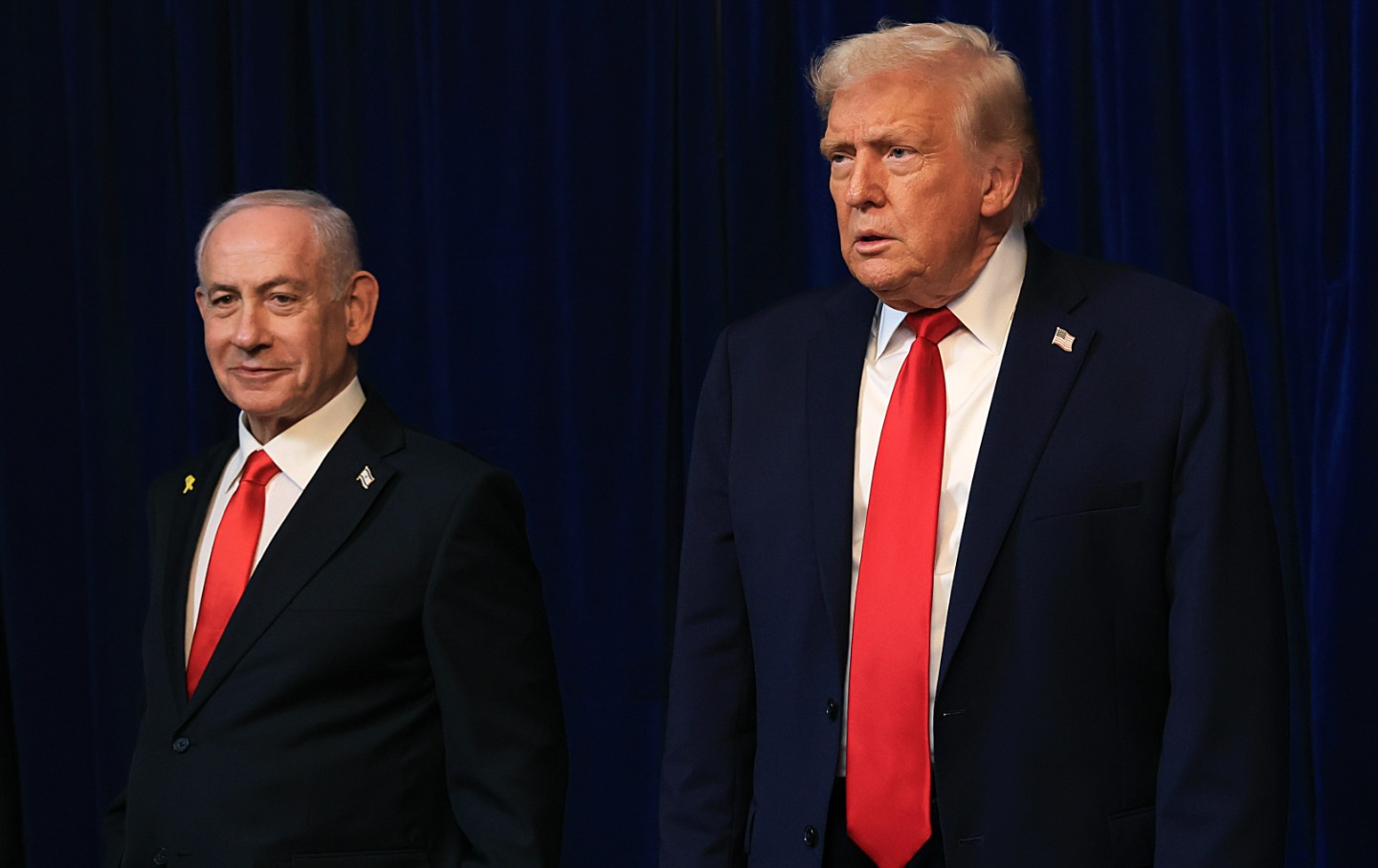
Trump and Netanyahu Want to Turn Iran Into a Failed State Trump and Netanyahu Want to Turn Iran Into a Failed State
This war looks designed to cause maximum chaos and instability. The world will pay a high price.
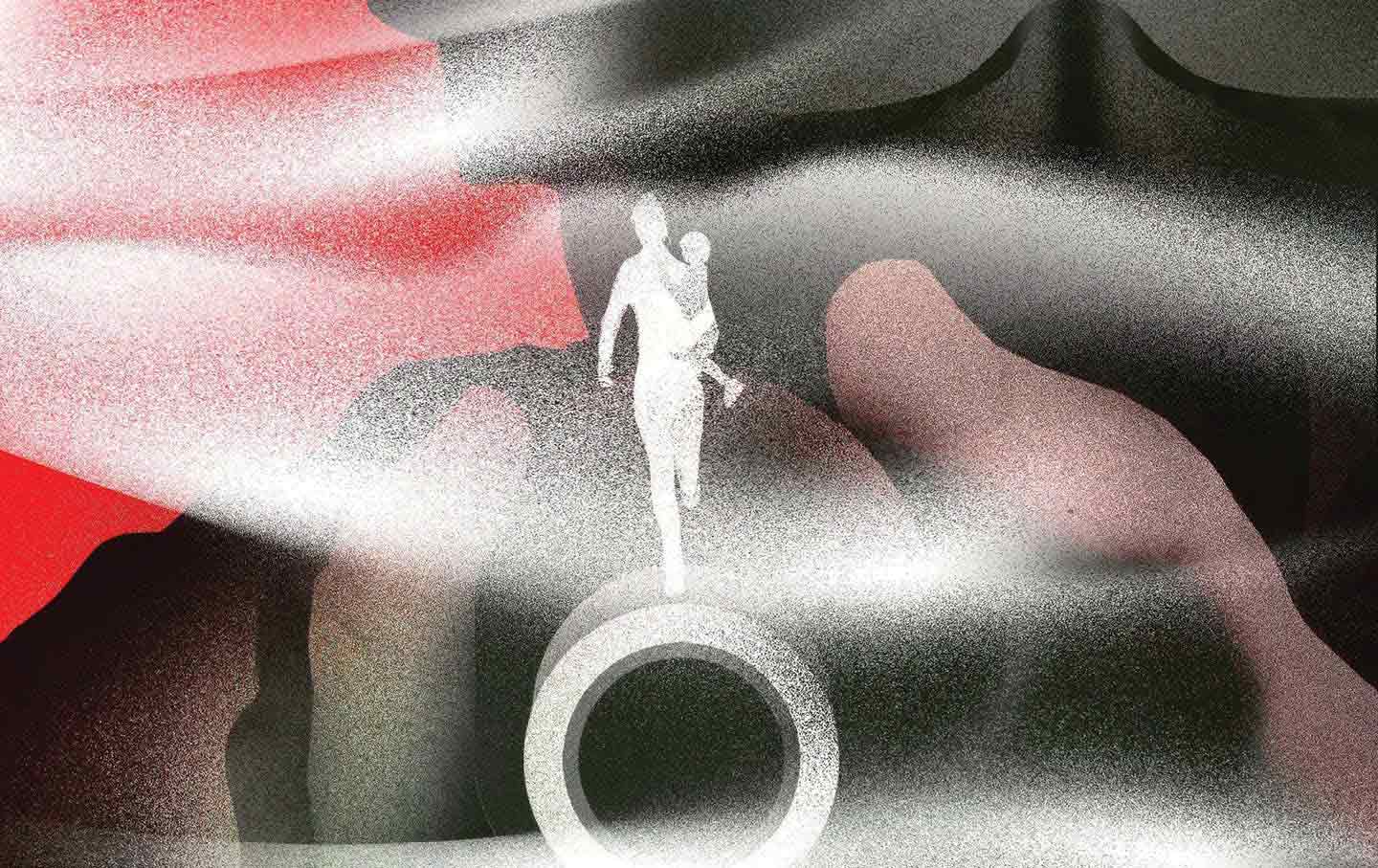
The War on Terror Paved the Way for Trump’s Rise—Now He’s Making It His Own The War on Terror Paved the Way for Trump’s Rise—Now He’s Making It His Own
Only the total abolition of the DHS can restore freedom.
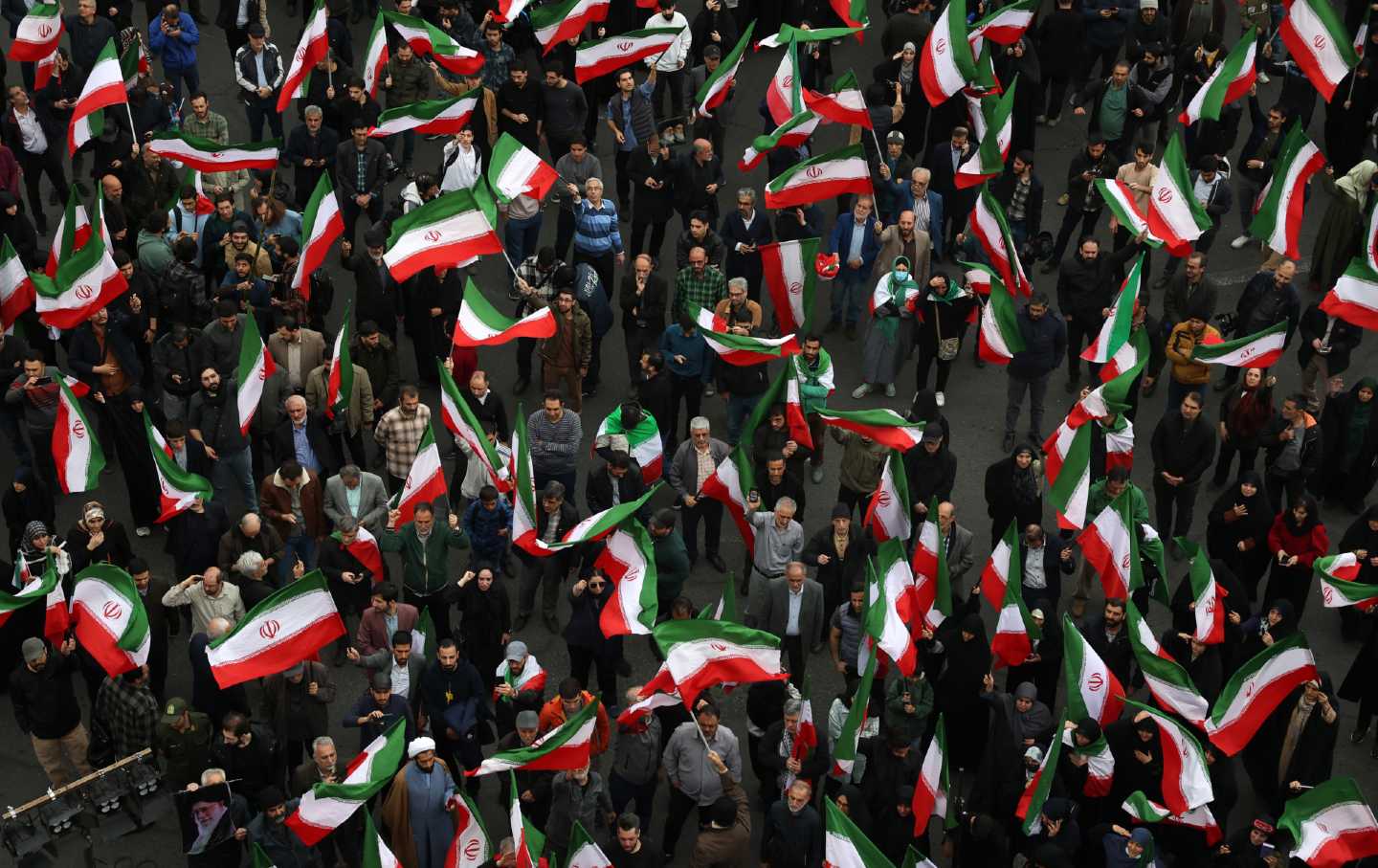
The Iranian Voices America Isn’t Hearing The Iranian Voices America Isn’t Hearing
We need to listen to those who oppose both the Islamic Republic’s authoritarianism and foreign military escalation.


